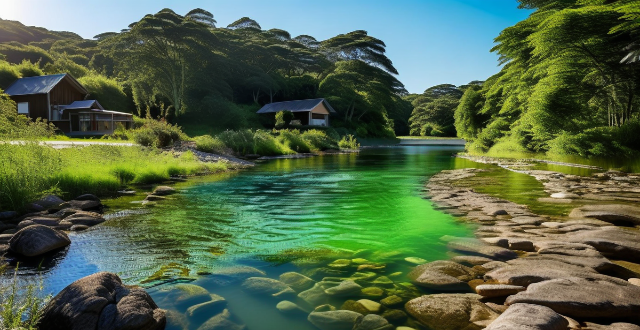Water conservation is crucial for sustaining the environment and ensuring future generations have access to clean water. Here's how you can implement water conservation measures in your home: identify areas of water consumption, repair leaks promptly, collect rainwater, educate family members, and regularly review your habits. By implementing these measures, you can significantly reduce your home's water usage and contribute to a more sustainable future for our planet.

Implementing Water Conservation Measures at Home
Water conservation is a crucial practice for sustaining our environment and ensuring that future generations have access to clean water. Here's how you can implement water conservation measures in your home:
Identify Areas of Water Consumption
Before implementing any measures, it's important to identify areas where water is consumed the most. This could include activities like showering, washing dishes, doing laundry, watering plants, and flushing toilets.
Showering
- Install low-flow showerheads to reduce the amount of water used without sacrificing pressure.
- Limit shower time to five minutes or less.
Washing Dishes
- Use a dishwasher instead of handwashing, as it uses less water and energy.
- When handwashing dishes, fill one basin with soapy water and another with rinse water instead of letting the tap run continuously.
Laundry
- Run full loads in the washing machine to maximize water usage.
- Consider using a front-loading washing machine, which generally uses less water than top-loaders.
Watering Plants
- Water early in the morning or late in the evening to reduce evaporation.
- Use drip irrigation systems for efficient water delivery directly to plant roots.
Flushing Toilets
- Install a dual-flush toilet system or place a displacement device in the tank to reduce the volume of water used per flush.
Repair Leaks Promptly
Leaks can waste significant amounts of water over time. Check regularly for leaks in faucets, pipes, and toilets, and repair them promptly. A small drip from a worn faucet washer can waste as much as 20 gallons of water per day.
Collect Rainwater
Collecting rainwater is an excellent way to conserve water for outdoor use. Set up a system to harvest rainwater from gutters and downspouts, and use it for gardening and other non-potable purposes.
Educate Family Members
Involve everyone in the household in water conservation efforts. Teach children about the importance of saving water and encourage them to turn off taps when not in use. Make it a family project to find new ways to save water together.
Regularly Review Your Habits
Finally, regularly review your habits and practices to ensure that water conservation remains a priority. Over time, as technology improves and new ideas emerge, there may be additional steps you can take to further reduce your household's water consumption.
By implementing these measures, you can significantly reduce your home's water usage and contribute to a more sustainable future for our planet.